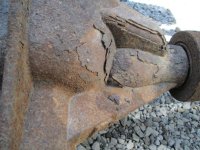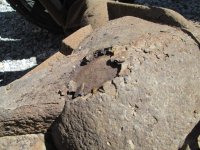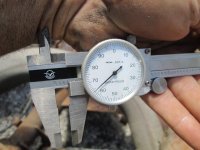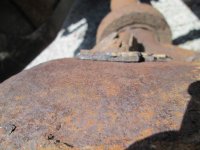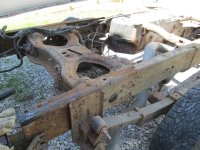MSCH
Well-known member
feel free to disagree.
they make darn good trucks, they are more popular than any other brand
but they are a royal PITA to work on.
I just saw a friend of mine yesterday, hadn't seen him in 35 years.. met up to eat.
while there he asks me if I know a good place to change his oil
he has an 11 F250 w 6.7 Powerstroke.
I said to him lets just do it at my house .
pick up 3.5 gallons of Rotella and a filter.
pop the hood and say WTF,,,
Fords better idea, cram 12 pounds of crap in a 10 pound bag.
I just changed the water pump, belt and thermostat on my Cummins, not saying it was easy
but the Ford looks impossible. oil change wasn't hard..
then he asks me if I have an electricl tester... yeah.
what do you want to check..
apparently his air bag compressor wont function,
there is an AUX plug under the rear seat, has a typical cigarette lighter receptacle
I test for 12v, aren't any...
ask him if this is a factory installation, he isn't sure but it sure looks factory..
ask him where the fuse block is..
he doesn't know.
so we go on a Where is Waldo search..
finally locate a main fuse panel behind the right side kick panel by the passenger seat.
almost impossible to see.
go in there and test what looks like 100 fuses with my test light, all good.
look some more, Ford has another breaker box under the hood, basicaly by the master cylinder.
same crap,, hard to get at. test all the fuses, all good.
find owners manual, good old Ford just numbers the fuses, so you have to look in several places in the book to figure out which is which.. which never led to a result
long story is never did figure it out but said to myself once one of the trucks starts to get messed up
best advice would be to get rid of it as labor time working on one of them would probably be a killer.,
they make darn good trucks, they are more popular than any other brand
but they are a royal PITA to work on.
I just saw a friend of mine yesterday, hadn't seen him in 35 years.. met up to eat.
while there he asks me if I know a good place to change his oil
he has an 11 F250 w 6.7 Powerstroke.
I said to him lets just do it at my house .
pick up 3.5 gallons of Rotella and a filter.
pop the hood and say WTF,,,
Fords better idea, cram 12 pounds of crap in a 10 pound bag.
I just changed the water pump, belt and thermostat on my Cummins, not saying it was easy
but the Ford looks impossible. oil change wasn't hard..
then he asks me if I have an electricl tester... yeah.
what do you want to check..
apparently his air bag compressor wont function,
there is an AUX plug under the rear seat, has a typical cigarette lighter receptacle
I test for 12v, aren't any...
ask him if this is a factory installation, he isn't sure but it sure looks factory..
ask him where the fuse block is..
he doesn't know.
so we go on a Where is Waldo search..
finally locate a main fuse panel behind the right side kick panel by the passenger seat.
almost impossible to see.
go in there and test what looks like 100 fuses with my test light, all good.
look some more, Ford has another breaker box under the hood, basicaly by the master cylinder.
same crap,, hard to get at. test all the fuses, all good.
find owners manual, good old Ford just numbers the fuses, so you have to look in several places in the book to figure out which is which.. which never led to a result
long story is never did figure it out but said to myself once one of the trucks starts to get messed up
best advice would be to get rid of it as labor time working on one of them would probably be a killer.,

